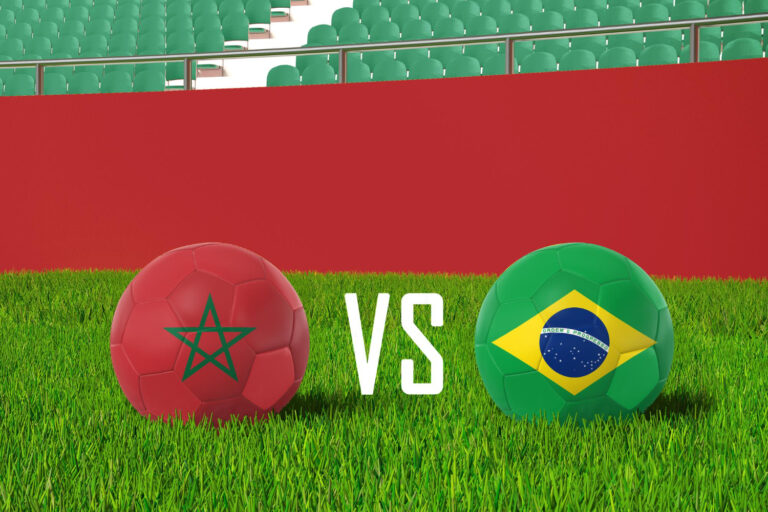What Makes a Country “Football Crazy”?
There’s an undeniable magic to football that grips nations by the soul. In some places, this sport transcends the pitch, it becomes religion, identity, language, and celebration all at once. But what does it really mean when we say a country is “football crazy”? It’s more than just packed stadiums and sold-out jerseys. It’s a deeper cultural connection, an emotional investment, and a shared rhythm of life dictated by the beautiful game.
Let’s explore what makes certain nations absolutely football mad, and why the game finds such deep roots in these cultures.
The Roots of Passion: History and Identity
In many football-obsessed countries, the game’s introduction often aligned with key moments in national identity. Take Brazil. Football arrived in the late 1800s but quickly grew into more than just a pastime. As Brazil transitioned through social and political change, football offered a canvas on which people of all backgrounds could express unity and pride. That’s why to this day, the national team is seen not just as athletes, but as a living representation of the country itself.
The same is true in Argentina, where football was tied to the working class and local barrios. Clubs became extensions of neighborhoods, and matches weren’t just about winning, they were about who you were. Over time, this historical link between football and national identity cemented the sport as an essential piece of a country’s character.
Local Heroes, Global Icons
What’s one of the fastest ways to build a nation’s obsession with football? Produce a superstar. The rise of legendary figures like Diego Maradona, Pelé, George Weah, or Mohamed Salah has ignited waves of passion across generations. These players don’t just win games, they become symbols of hope, resilience, and possibility.
In countries like Egypt, Salah is more than a Liverpool forward; he’s a national hero who represents the dreams of millions. In Liberia, Weah became so iconic he transitioned from footballer to president. When a nation sees one of its own rise to global football greatness, the sport becomes embedded in collective imagination. Children dream not just of success, but of impact, and football becomes a tool for upward mobility and national pride.
Street Football and Community Culture
In truly football-mad countries, the game is everywhere, not just in stadiums or on TV. It’s played in alleys, on beaches, in dirt fields, and across rooftops. What separates a football-passionate culture from a casual one is the sport’s grassroots presence. This street football culture creates a constant buzz around the game and makes it part of daily life.
In Nigeria, boys and girls make goals out of sandals and play with deflated balls. In the favelas of Brazil, kids sharpen their dribbling in tight spaces that produce some of the world’s most technical players. Even in Indonesia or India, countries not globally dominant in football, you’ll find teeming street games every evening, showing that the love for the sport burns brightly regardless of infrastructure or international rankings.
Rivalries That Split Cities
One telltale sign that a country is football crazy? The sheer intensity of its rivalries. And not just big ones like El Clásico or the Old Firm derby, every city in these countries has its own heated local battles. In Istanbul, Galatasaray vs. Fenerbahçe isn’t just a match; it’s a war of ideologies. In Argentina, River Plate vs. Boca Juniors can divide families and friendships for life.
These rivalries aren’t superficial entertainment, they’re deeply ingrained into the social, political, and historical fabric of their communities. When fans speak about their clubs, they don’t use terms like “support.” They say “we,” “us,” and “ours.” These aren’t sports teams, they’re lifelines.
Media, Coverage, and Daily Conversation
In football-obsessed countries, sports news is dominated by the game 24/7. Newspapers give front-page coverage to transfer gossip. Talk shows dissect every second of a match. Entire radio stations are dedicated solely to football, and social media trends explode over single missed penalties.
In Italy, for example, shows like La Domenica Sportiva are staples of Sunday night viewing, and the tactics of Serie A teams are debated with the same energy one might reserve for elections. In South America, morning conversations often begin not with “how are you?” but “did you see the game last night?”
When football becomes a language of its own, spoken across workplaces, schools, bars, and churches, you know the nation has gone all in.
Sacrifice and Loyalty
To be truly football crazy is to make sacrifices for the game. It means skipping work to watch a Champions League match. It means queuing all night for tickets. In Ghana or Kenya, it means walking miles just to find a working TV. In Poland or Serbia, it’s braving snowstorms in open stadiums. And it means standing by your club through heartbreak, relegation, and even scandal.
Loyalty in football-mad countries isn’t conditional. Clubs become inherited, passed down like heirlooms. Fans weep, riot, pray, and celebrate together. Supporting a team is part of your identity from birth to death. That depth of emotional attachment isn’t just love. It’s obsession. And it’s glorious.
Football as Escape and Unity
One of football’s most powerful roles in passionate nations is its ability to provide escape and unity. In economically struggling countries, football becomes a rare space where dreams feel tangible. Kids in war-torn zones kick balls between burned-out buildings. Refugees set up matches in camps. Through all this, football offers a sense of freedom, normalcy, and hope.
Even in politically divided countries, the national team can bring people together, if only for 90 minutes. When Iraq won the Asian Cup in 2007, people of all ethnicities and sects poured into the streets, celebrating under a shared flag. That’s the kind of unity only football can achieve.
Government and Institutional Support
In many football-crazy nations, even the state gets involved. Governments fund academies, build stadiums, and invest heavily in their national teams. In some cases, it becomes political currency, leaders attach their image to successful teams to boost popularity. This blend of politics and sport might raise eyebrows, but it also signals the importance football holds in national consciousness.
In Senegal, the government has invested in developing youth talent and supporting domestic leagues. In Qatar, massive investments have been made in infrastructure ahead of the World Cup. When a nation is willing to place its global reputation on the line for football, it signals that this sport is not just a pastime, it’s a priority.
Religious Overtones and Rituals
In certain cultures, football carries spiritual energy. Fans light candles, chant blessings, and offer prayers before major matches. Players cross themselves, kiss religious icons, or kneel on the field after scoring. Some fans believe in sacred shirts or cursed seats. Others speak of divine intervention when a match turns miraculously.
This spiritual layer adds another dimension to the game. In deeply religious countries, football is often treated with reverence, and its heroes are venerated like saints. It might sound extreme to outsiders, but in a football-mad country, it makes perfect sense.
The Next Generation Keeps It Alive
What ensures that a nation stays football crazy generation after generation? The kids. In these countries, you don’t have to teach children to love the game, they grow up surrounded by it. Their heroes are footballers, not celebrities or politicians. They learn the rules before they can write. They can identify club crests before they can read road signs.
Grassroots academies and school tournaments flourish in these environments. Parents tell bedtime stories about legendary goals. Coaches, often unpaid, nurture talent in dusty fields out of love for the game. This organic, bottom-up love ensures football remains a permanent fixture in the country’s heartbeat.
Conclusion
So, what makes a country truly football crazy? It’s a mix of history, identity, sacrifice, and culture. It’s the child juggling a ball on a dirt pitch, the grandmother who never misses a match, the fan who tattoos their club crest over their heart. It’s the collective breath held during a penalty shootout and the roar of a goal echoing across entire cities.
Football madness isn’t measured by trophies or rankings, it’s measured by heartbeat. By how deeply the game lives in the minds and rituals of its people. In these places, football doesn’t just reflect life. It is life.







